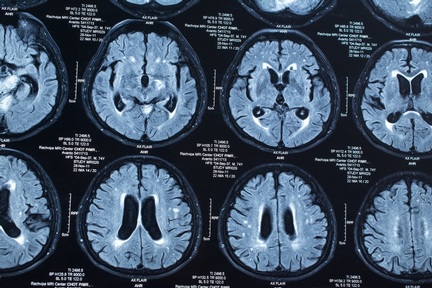Alzheimer's memory loss could reverse with brain implant
Researchers in the USA have developed a brain implant that could potentially reverse memory loss.

The device includes a small array of electrodes which can replicate the function of the hippocampus, one of the first regions of the brain to be damaged by Alzheimer's disease.
Dr Clare Walton, research manager at Alzheimer’s Society, said: “Researchers are addressing a major problem for people with Alzheimer’s disease and other forms of dementia - the ability to lay down new memories.
“The practical upshot of this is that people may have clear memories of events from their childhood but can’t remember the details of what took place yesterday.
“The hippocampus is vital for remembering new events, people and places and it's one of the first parts of the brain to be damaged in Alzheimer’s disease. In theory this device has the potential to help people to form new memories even when their hippocampus is damaged.”
In a previous study, scientists examined nine patients who had electrodes implanted in their brains to control epilepsy.
Using computer software to record brain signals and mirror their translation in the hippocampus, they found that the system was likely to work with 90 per cent accuracy.
The scientists found that when the brain receives a sensory input, it creates a memory in the form of a complex electrical signal that travels through multiple regions of the hippocampus. The memory is re-encoded until it is sent off for long-term storage.
However, any damage suffered by the brain could prevent the translation process and stop long-term memories from forming. This finding reveals why an individual living with Alzheimer’s disease can recall long term events before the disease progresses, but has difficulty forming new long term memories.
Although the brain implant has been successfully used in rodents and primates, it is yet to be officially tested in people.
Dr Walton added: “A prosthetic memory device is a very exciting prospect, but it has taken decades of research to get this far and there are still many unknowns that need to be worked out by the scientists.
“It’s encouraging to see these cutting edge technologies being applied to help people affected by memory loss, but this isn’t something that people with dementia can expect to be readily available in the next decade.
“If this device is developed further and successfully tested in humans, it could prove to be an effective treatment for some of the symptoms of dementia, however it will not cure or slow down the progression of the condition.”
The research findings were presented at the Annual International Conference of the IEEE Engineering in Medicine and Biology Society in Milan, Italy.
Latest News
 29-Jul-24
Dementia Bus gives carehome.co.uk staff insight into life with dementia
29-Jul-24
Dementia Bus gives carehome.co.uk staff insight into life with dementia
 01-Mar-24
Find out the top care homes in 2024
01-Mar-24
Find out the top care homes in 2024
 21-Mar-23
UK's top care homes in 2023 revealed
21-Mar-23
UK's top care homes in 2023 revealed
 03-Jan-23
carehome.co.uk launches free care helpline
03-Jan-23
carehome.co.uk launches free care helpline
 13-Dec-22
5 mins with Emily Whitehurst, chief operating officer for Constantia Healthcare
13-Dec-22
5 mins with Emily Whitehurst, chief operating officer for Constantia Healthcare